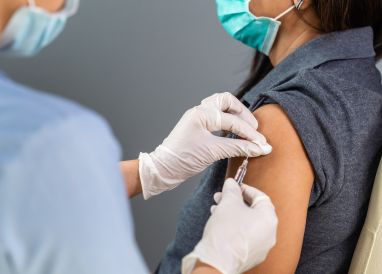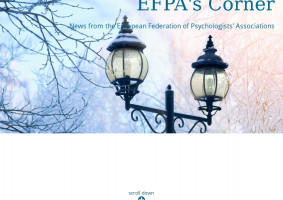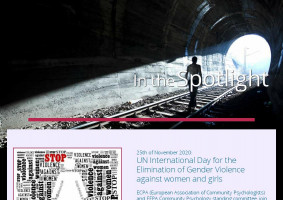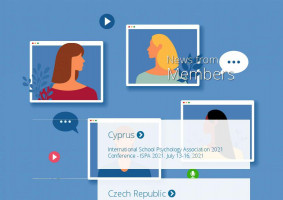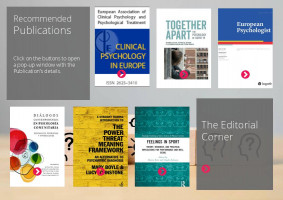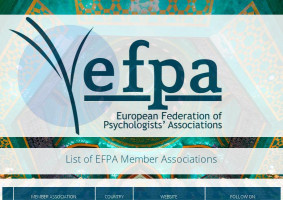Cyprus
International School Psychology Association 2021 Conference - ISPA 2021. July 13-16, 2021
(1)_w284_h282_1.png)
ISPA 2021 is going hybrid! Present, Participate, Disseminate, Connect, and Network with onsite or online participation!
Nicosia, July 13-16, 2021
Cyprus Psychologists' Association (CYPSA) is delighted to announce the first HYBRID Annual Conference of the International School Psychology Association ! Due to the continued uncertainties of the global COVID-19 pandemic, the ISPA 2021 will be held as a hybrid event between July 13-16, 2021. This is a unique opportunity for greater reach around the globe and more inclusive participation.
Benefits to You
Choose flexibly between on-site or online attendance according to personal needs and preferences.
Attend interactive and engaging live sessions with synchronous live broadcasting with respect to different time-zones.
Continued access to on-demand sessions and materials during the conference and up to 60 days afterwards.
An exciting program
We are working towards designing an engaging program to serve the Theme of the conference. Adjustments and novelties will be introduced to accommodate for a hybrid format but all the valued key components of ISPA conferences will be incorporated.
Opportunity for NEW submissions
A new Call for Abstracts opened on January 15th 2021 inviting paper and poster submissions for all hot topics and submissions for round table discussions and workshops only for the NEW hot topic “Responding to the psychosocial challenges of the pandemic”. Submission of new abstracts until March 8th 2021 through the online submission system.
Flexibility of Registration
Registration is now open again! Special registration fees have been launched for those opting for Online Participation.
Early significantly reduced registration rates deadline: April 16, 2021

Czech Republic
Psychological Associations of the Czech Republic has sent to the Prime Minister another request for an exemption from the service ban. January , 2021
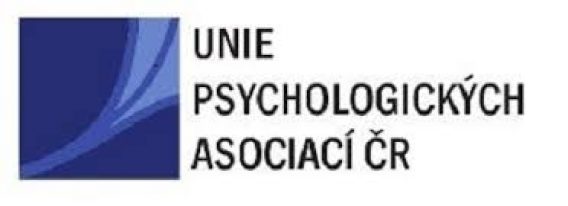
On 3 January 2021, the Union of Psychological Associations of the Czech Republic and the Czech Association for Psychotherapy again sent to the Prime Minister Ing. Andrej Babiš requested an exemption from the ban on services for private psychologists and psychotherapy. The need for permission for these services also follows from the comments of the professional and general public under an open letter sent to the representatives of the Government of the Czech Republic in November 2020. Some of these comments are listed in the appendix to the application.
Read the request here as PDF
Read more here on the Unie psychologických asociací ČR website
Denmark
State employees are losing wages because of the corona crisis. January, 2021

_w1278_h658_1.jpg)
All employees in the state - including psychologists - will receive a small salary reduction as of 1 February 2021.
This is because government employees are covered by the so-called regulation scheme, which is to ensure equal pay between government employees and private employees, and which was part of the agreements between employees and employers in the public sector under OK18.
The scheme regulates wages in the private and public labor markets, respectively, so that there is not too great a difference in wages. If it goes well in the private sector, then it spreads to the public sector. If, on the other hand, it goes badly, the reverse is true.
That situation has unfortunately become topical now due to the corona crisis. The crisis has had a negative impact on the Danish economy. This means that the private wage development has been negative - and that development therefore now also affects the public wage development. The negative wage development in the 3rd quarter in the private sector due to the corona, there was probably no one who had imagination to imagine when negotiating OK18.
From 1 February, you will - if you are employed by the state or follow the state collective agreement - therefore receive a salary reduction of 0.25 per cent. This means, for example, that a psychologist in the state at level 8, authorization supplement and a qualification supplement (DKK 12,500 annually) will experience a salary reduction of almost DKK 94 per year. month (before tax).
Wages in municipalities and regions are not affected.
We are fighting for fair pay in the coming years.
It is only almost a month ago that the Academics, to which the Danish Psychologists' Association belongs, submitted their demands for the coming agreement period OK21 with the state. At the top of the list of requirements for the state employer is an ambitious, fair and realistic wage development. Not least in a time of Corona, where public servants have made an extraordinary effort and shown enormous readiness for change to keep their hands under society during the crisis.
But we also demand sustainable change, healthier workplaces, stronger skills development and working hours.
The Danish Psychologists' Association continues to fight together with the Academics to ensure psychologists in the state the best working conditions and a fair salary in the coming years.
Of course, it must be taken into account that our economy is in a difficult time, but we must also ensure that government employees can see this reflected in their paychecks when the crisis turns.
If you have any questions, you are welcome to contact the Danish Psychologists' Association's counseling at dp@dp.dk .
Germany
Digitization requires trust - sensitive data must be collected sparingly and remain protected. December, 2020
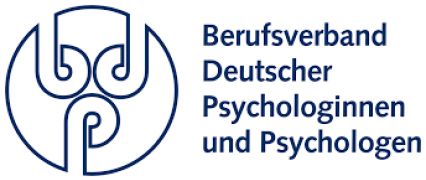
_w994_h864_1.jpg)
The draft bill of the Digital Supply and Care Modernization Act (DVPMG) presented on November 15, 2020 is viewed very critically by the BDP (Professional Association of German Psychologists). Through the DVPMG, more and more highly sensitive data are linked with the ePA (in the form of DiGAs - digital health applications, for example). In the case of mental illness, these are, for example, mood diaries with personal notes if necessary. The expansion of the so-called fast-track or quick approval procedure is now also particularly critical for apps in the care sector. Here, DiGAs are already approved without any proven medical benefit. Health insurance companies are allowed to evaluate data from insured persons (e.g. on diagnoses) in order to offer their insured persons largely unchecked DiGAs.
Rapid processes and unclear regulations endanger the potential of digitization in the healthcare sector. Consumers urgently need trust in the sustainable security of health data and in the direct benefits of digital applications.
Of the six DiGAs currently approved for use, five are in the psychotherapeutic area. Mentally ill people are used in the first row when testing new forms of intervention - potential risks, such as deterioration or chronicity of the disease, are not taken into account in the benefit assessment. When digitization is introduced in healthcare, no patient grouping should be used as a test population for processes with unclear benefits and risks.
We see it as particularly problematic that the legislature has made considerable expansions of the use of sensitive health data for third parties in advance through the Patient Data Protection Act. “Such sensitive data, like those from psychotherapeutic DiGAs, have no place in the electronic patient file,” says Susanne Berwanger, Section Psychological Psychotherapy (VPP in the BDP). “Such details are not necessary, for example, to inform other treatment participants about relevant medical aspects. The best data protection is still data economy. In the context of the current situation, due to numerous other data protection concerns, we demand: No psychotherapeutic data in the current EPR. "
Ireland
Introducing Dr Megan Gaffney - Psychological Society of Ireland (PSI ) President for 2021. January, 2021
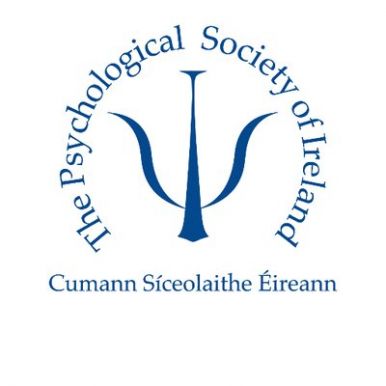
(1)_w852_h544_1.jpg)
On 01 January 2021, Dr Megan Gaffney became the Society's 51st President. Megan, a Chartered Member of the PSI, is a Chartered Counselling Psychologist and runs a private practice. She also lectures in Trinity College Dublin and Dublin City University. Megan has served on Council for a number of years, previously holding the Membership Secretary position, and has been actively involved in the Division of Counselling Psychology and the Society's Communications and Events Committee, as well as various other groups within the Society.
Click here to see Megan's interview in the December 2020 issue of The Irish Psychologist magazine
Click here to view the video of Megan's president's address for 2021
Netherlands
Vaccination strategy for healthcare psychologists January, 2021

These measures will take effect from September 29 at 6:00 PM and will remain in effect for 3 weeks. Based on the effects on contamination in the Netherlands, the cabinet will then decide on additional measures. Psychologists can continue to work according to the guidelines drawn up by the NIP together with the parties involved in healthcare (see guidelines for mental health care and corona).
See the infographic: vaccination strategy (National gov.)
Slovenia
Slovenian Psychologists Association wins the EESC Civil Solidarity Prize for Slovenia. February, 2021
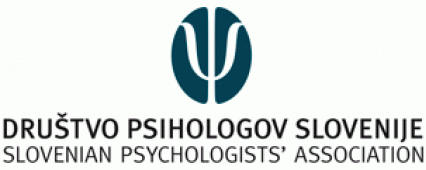
_w852_h434_1.jpg)
The entry submitted by the Slovenian association is among 23 projects from the EU and the UK that have received the award for their outstanding contribution to fighting against COVID-19 and its disastrous consequences
The European Economic and Social Committee (EESC) has awarded the Civil Solidarity Prize to the Slovenian Psychologists Association (SPA) for its project offering psychosocial support to the people of all ages during the pandemic. The Association also provided professional support to psychologists on how best to tackle the pandemic’s effects.
The EESC, an advisory body representing Europe's civil society at the EU level, selected the association as the best Slovenian candidate for the Prize, saying its entry stood as a shining example of remarkable solidarity during the COVID-19 crisis.
Many people, including schoolchildren and students, benefitted from the psychosocial support provided, and the initiative strengthened connections between professionals in the field. In the longer term, it has created a network of experts who can be activated in the event of another outbreak or disaster.
Read full press release on EFPA Psychologists' Support Hub about COVID-19 crisis under Resources from Slovenia
Read more about the EESC Civil Solidarity Prize on the EESC website
United Kingdom
- The impacts of the pandemic on the mental health and wider psychological development of our children. February, 2021
- LGBT History Month. February, 2021
-
Educational Psychology and the early years: early hope(s) for the future. February, 2021
- Despite Anxiety About COVID-19, Climate Change Remains A Key Concern In The UK. February, 2021
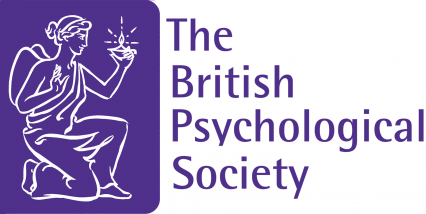
The impacts of the pandemic on the mental health and wider psychological development of our children
By BPS Division of Clinical Psychology
In a piece originally published by the DCP Faculty for Children, Young People, and Families, with assistance from the BPS Policy Team.
February 4, 2021

As clinical psychologists working with children, young people and their families, we are concerned about the impacts of the pandemic on the mental health and wider psychological development of our children. While we acknowledge that there will have been some positives to the experiences for many children and families, our concern is about the negative impacts which are set against the background of a pre-pandemic increase in children’s mental health difficulties.

February is LGBT+ month in the UK which seeks to raise awareness of the history of lesbian, gay, bisexual and trans people, while the + recognises that there are many more ways to identify and describe gender and sexuality beyond the LGBT acronym. The story and journey of the LGBT+ community often suffers from a lack of acknowledgment in mainstream historical accounts, and this is also true of mainstream accounts of the history of psychology.
Although I am extremely passionate about highlighting the range of work which early years educational psychologists (EPs) can do, I am also extremely mindful that at the time of writing this blog, it would not feel authentic if we did not acknowledge the challenges that Covid-19 has brought. Such challenges have been anything but exclusive to early years settings, or for those supporting them.

Climate change is a cause of serious concern for many — but that doesn’t mean anxiety about the planet is always at the top of people’s agendas. As we reported last year, the effectiveness of climate change appeals can vary considerably. And other research suggests that worries about the environment can be displaced by other issues (fewer Americans reported concern about climate change after the 2008 financial crisis, for example). This latter phenomenon is known as the “finite pool of worry” hypothesis: that as some concerns creep up our radar, others become neglected.
